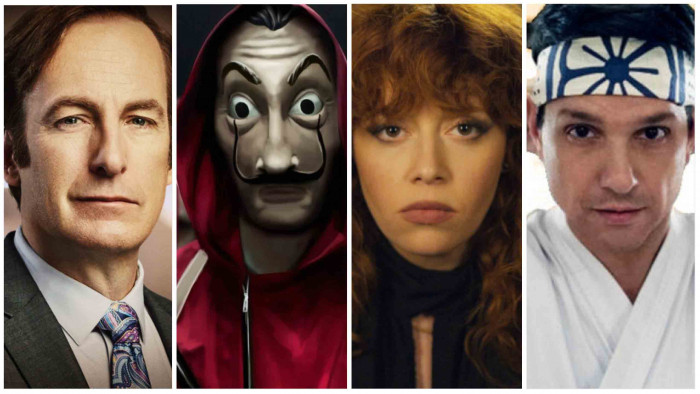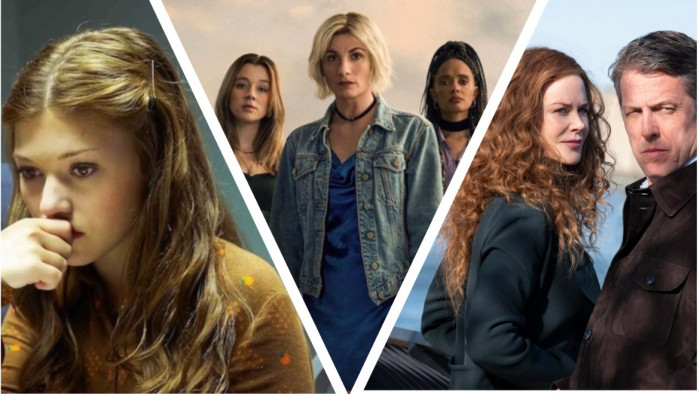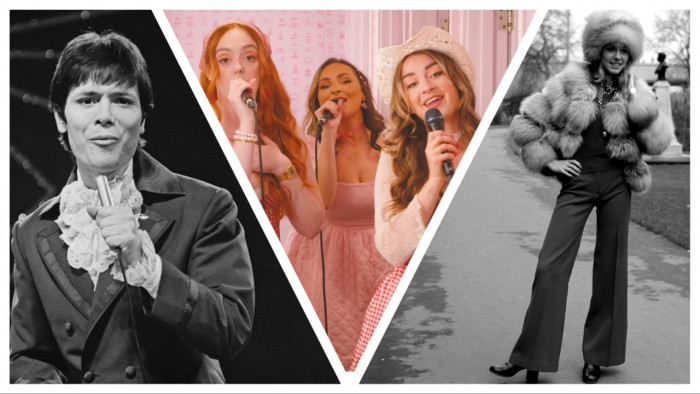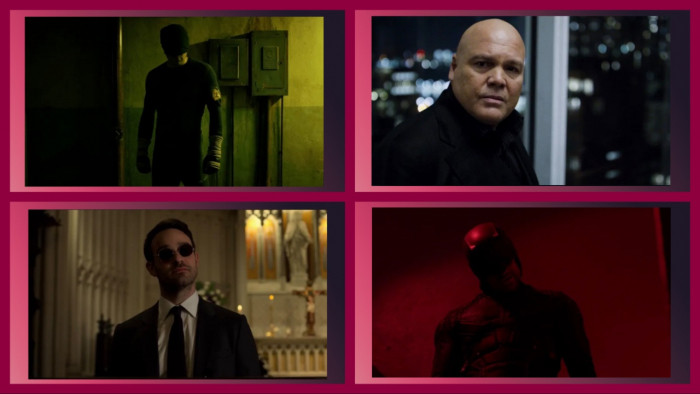Green, rickety doors swing open to reveal threadbare carpets, a thick cloud of cigarette smoke and battered brass fittings as heavily pomaded men bustle past a large Art Deco clock. Beyond that there’s a corridor decorated in varying shades of beige, peeling walls and tables groaning under the weight of vintage newspapers and dusty telex machines.
ShortList may have just emerged from a double-decker bus rather than a DeLorean but, for a split second at least, it feels like we’ve travelled back in time.
The reason for this unexpected hop back to the Fifties isn’t an implausible rip in the space-time continuum. On a chilly February morning, we’ve been invited to the set of the BBC’s high-profile new series The Hour. Starring Dominic West, Ben Whishaw and Romola Garai, the six-part drama hurls us back to 1956 as a pioneering Panorama-style TV show is launched in the midst of the Suez Crisis.
With its dapper costumes and chain-smoking swagger, it’s unsurprisingly been compared to Mad Men by virtually everyone (more on which later), but as we spend a day backstage it quickly becomes clear that this show is carving out an identity all of its own. Because if you peer beyond the clinking cocktails and pocket squares, there’s an entirely darker proposition; a world of political intrigue, government-ordered violence and soggy suet dinners that’s about as far from the glamour of Madison Avenue as you can possibly get.
OLD NEWS
“We started with the idea of a Fifties-set show that was about news,” explains series producer Ruth Kenley-Letts. We’re talking to her about the inception of the series deep in Hornsey Town Hall — a listed north London building, immaculately preserved since the Sixties, that’s acting as the BBC’s Lime Grove Studios in the show.
“It was a time of great change,” she continues. “The end of the British Empire, the Suez Crisis and the arrival of investigative-reporting shows such as Panorama and Tonight — it just seemed right for a drama.” Award-winning writer Abi Morgan thought so too, and her scripts soon attracted an impressive cast, including West in his first major TV role since The Wire.
“I hadn’t read any episodic television that really turned me on until this,” he says, with his hair slicked back in preparation for filming, when we talk to him later. “I’d had producers come up to me and go, ‘I’ve got this brilliant idea. You play this drunk cop...’ How genius,” he laughs. “But this is a beautifully written show about something interesting, so I couldn’t resist it.”
West plays Hector Madden, the roguish host of news show ‘The Hour’ who also acts as a prong in a simmering love triangle between Garai’s driven producer Bel Rowley and Whishaw’s idealistic newshound Freddie Lyon. Garai — best known for roles in Atonement and recent BBC Two drama The Crimson Petal And The White — glides in wearing a dressing gown and echoes West’s enthusiasm for the project.
“There was a new guard of younger people coming in to alter what the BBC was in terms of its news,” she says. “To change it from a propaganda machine to something quite cutting edge.” When we speak to him on the phone a few weeks later, Criminal Justice star Whishaw goes even further with his admiration.
“The script had a great, unusual quality about it,” he explains. “Abi’s managed to represent something about the suspicion, paranoia and uncertainty of that time so incredibly well. It’s the most detailed thing I’ve ever read.”
He’s not kidding. After being ushered to an editing suite, we’re shown footage of the first episode and the zippy writing, shifty-eyed mystery and surprisingly grisly acts of violence fly off the screen so vividly that you can almost smell the stale gin. Eyeing the high bar set by Mad Men’s tireless researchers, the makers of The Hour have thrown everything into recreating the gravy- spattered grimness of Fifties Britain.
As we’re handed headphones and led to watch filming, the lengths production staff have gone to become clear.
West and Garai stride into a cramped room to film a small, flirtatious exchange and proceed to burst into fits of giggles after each take. Garai has shed her incongruous dressing gown to reveal a slinky red dress and West, on the director’s instruction, is lighting a fake cigarette, but the most striking thing is the messy newsroom. From the overflowing ashtrays to the vintage chocolate wrappers, every bit of clutter looks the part.
A MAD WORLD
“I’ve never seen anything so amazingly meticulous,” says Whishaw about the set. “There are piles of papers and folders on the desks and right down to the bottom they’re all accurately researched news items that would have been on that person’s desk at the time.”
This painstaking recreation of the past is all down to production designer Eve Stewart (recently Oscar-nominated for her work on The King’s Speech) who welcomes ShortList into her cavernous workshop to discuss the design team’s extensive work.
“In terms of design, this was a period of transition from tired old post-war Britain to more space-aged influences,” explains Stewart. “We used archive footage, a big album of Suez-era photos we found at a boot sale, and things we got at auction.
We mocked-up entire newspapers and chopped the ends off cigarettes, as they were shorter back then. We’ve got all the Fifties cameras to work too,” she reveals. “There was an entire network of lovely old blokes in garages who helped us.”
She’s partly referring to Dicky Howett, a vintage camera enthusiast who not only provided the phone box-sized behemoths currently littering the studio floor, but also donned a costume and operated them as part of The Hour’s cast of skilled extras.
However, West and Garai are quick to point out that this commitment to period specifics threw up its own difficulties. “The cars were nice but f*ck they were cold,” says West, shivering at the memory. “And every time we got a scene where we were eating, it’d be a pie or suet pudding,” shudders Garai. The austere single bed in Bel’s room also caused problems when it came to filming, erm, ‘intimate’ scenes. “It was like a little girl’s room,” laughs West. “And she fell off the bed.”
It’s coming towards the end of our time on set, and we haven’t mentioned the sharp-suited elephant in the room. Are they already sick of the Mad Men comparisons?
“We’re fans [of Mad Men], but that’s absolutely not where the idea for this show started,” says Kenley-Letts, somewhat wearily. “The world of advertising is far glossier than ours and The Hour has a very different thriller element.”
West puts it far more succinctly. “[The] British Mad Men just can’t happen, so we’re bound to look stupid if we emphasise it too much. I did a BBC series ages ago called Out Of Hours, and I was billed as the ‘English George Clooney’,” he says. “It was a f*cking disaster.”
As we step out of the smoke, through the green doors and back into the 21st century, we’d bet that the same won’t be true of this show.
The Hour starts on BBC Two at 9pm on 19 July
(Images: BBC)










